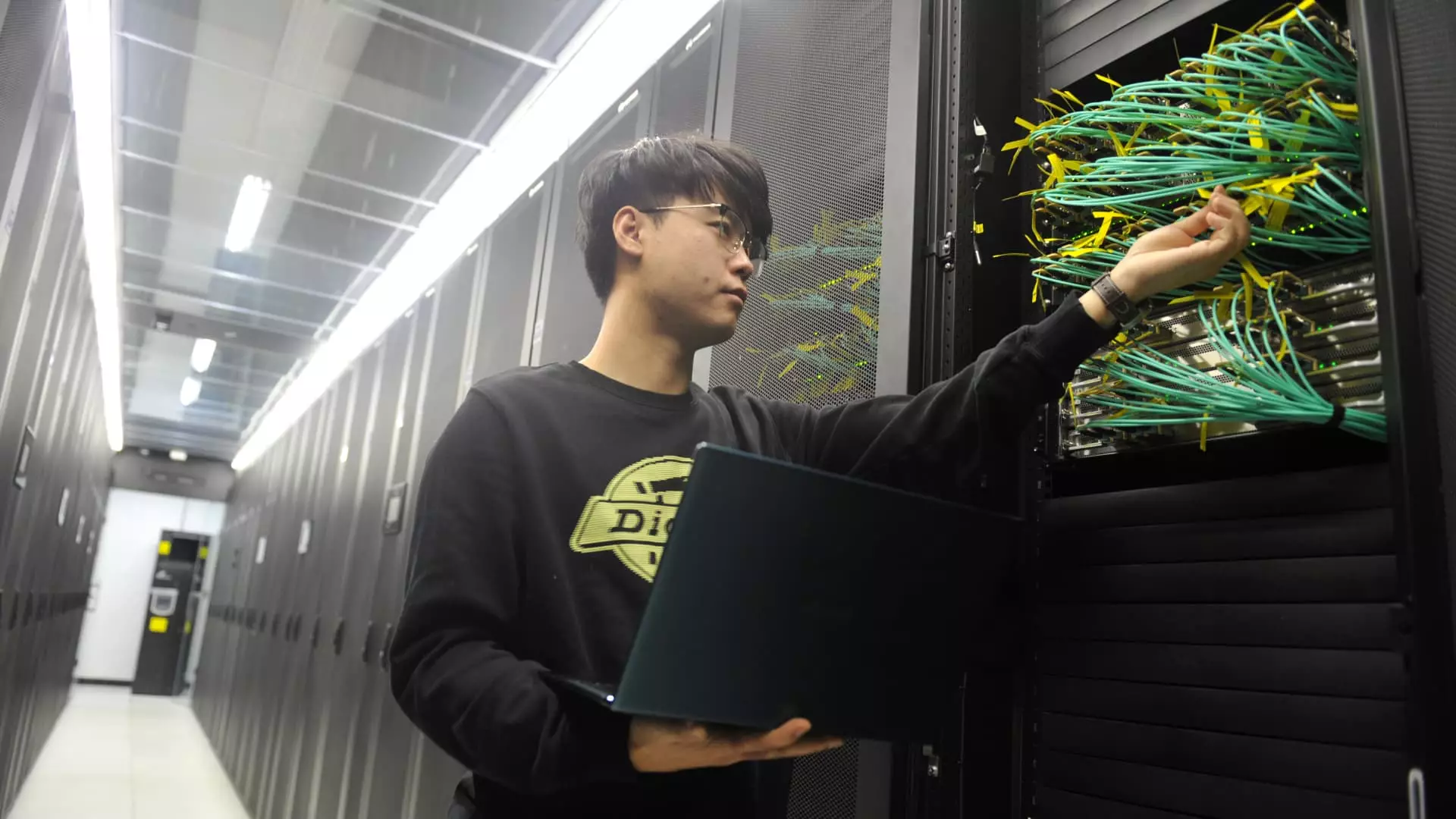The ongoing U.S.-China trade tensions have become a grim backdrop for economic interactions, as they escalate and morph into a multifaceted struggle for dominance. However, even amid the chaos, Chinese companies stand poised to leverage this adversarial climate for their own technological advancements. The crux of the matter lies in the intersection of trade policy and artificial intelligence (AI) development, where significant players like Kingsoft Office and Kingdee are emerging, showcasing resilience and innovation against a backdrop of international turmoil. This duality highlights an ironic twist in the narrative: while trade barriers threaten economic stability, they also propel essential growth in critical sectors, particularly in AI.
The AI Surge: A Strategic Pivot For Chinese Firms
The recent advancements in AI have seemingly liberated Chinese companies from the shackles of traditional trade restrictions. As these firms turn to DeepSeek’s generative artificial intelligence capabilities, they’ve identified a crucial pathway to streamline operations and enhance productivity. Analysts from Bernstein predict that this escalation in AI demand will be a cornerstone for growth and competition. It’s not merely about reducing costs; it’s about rethinking the very fabric of business strategies. This shift in perspective is crucial, as companies reimage themselves in a landscape that increasingly values AI-centric models. Kingsoft Office and Kingdee’s targeted efforts to pivot their operations toward AI demonstrate an exciting glimpse into the future of domestic innovation despite rampant external pressures.
A New Era of Self-Sufficiency
China’s strategic response to U.S. tariffs has been to fortify its technological independence, especially in the realm of AI. The government’s encouragement of investments in local innovations may very well serve as a double-edged sword, strengthening domestic capabilities while also drawing a proverbial line in the sand against foreign influence. The dramatic rise in Kingsoft’s user base to 19.68 million for its AI-enhanced WPS application is a prime example of how homegrown technologies can flourish in a hostile environment, challenging the notion of dependence on foreign software ecosystems like Android.
Forecasts Paint a Mixed Picture
Despite the increasing optimism surrounding AI, the broader economic forecasts paint a more somber picture. Analysts at Goldman Sachs and Citi have been compelled to revise their growth expectations for China, driven by the intensifying nature of the trade conflict. This juxtaposition between the local AI boom and the broader economic malaise serves as a stark reminder that while technological advancement may thrive, both it and the companies behind it are still vulnerable to the ramifications of geopolitical strife. The ripple effects of tariff wars threaten to undermine any gains achieved through innovation, creating a complex dynamic that necessitates vigilant adaptation.
The Growing Demand for Infrastructure
Interestingly, trade tensions may inadvertently set the stage for a robust domestic market for cloud computing and Internet data centers (IDCs). With firms like China Mobile and GDS Corp emerging as leaders in this space, the anticipated demand surge can be interpreted as a direct response to the ongoing disruptions. Identifying a critical need for enhanced computing power and infrastructure suggests that even amidst economic challenges, the appetite for digital innovation remains strong. This internal demand could help cushion the overall economy against the adversities posed by international tensions.
AI: China’s Future Pillar of Strength
The ambitious trajectory of AI investment indicates that this technology will not just act as a stopgap but may ultimately define China’s next phase of economic evolution. Firms’ commitment to making AI the centerpiece of their operations signals a strategic forethought that recognizes the pressing necessity for domestic solutions. The projected growth in AI-related spending by up to 25% annually indicates a future where Chinese companies could rely more on local expertise, insulating themselves from foreign economic pressures. With such developments at play, AI could very well emerge as a critical pillar for enduring growth in the face of adversity.
Embracing Potential Amidst Adversity
While the relationships between the U.S. and China continue to deteriorate, it’s essential to note the proactive strategies employed by Chinese enterprises. Instead of being paralyzed by fear or uncertainty, these companies have chosen to embrace the potential for growth through advanced technologies, illustrating a resolve that transcends mere survival. The evolution of products and services to integrate AI not only serves the immediate needs of businesses but also ensures their relevancy in an ever-more competitive global landscape. In this sense, the impact of AI could redefine China’s economic narrative, positioning it as a formidable force rather than a passive player in the international arena.


Leave a Reply